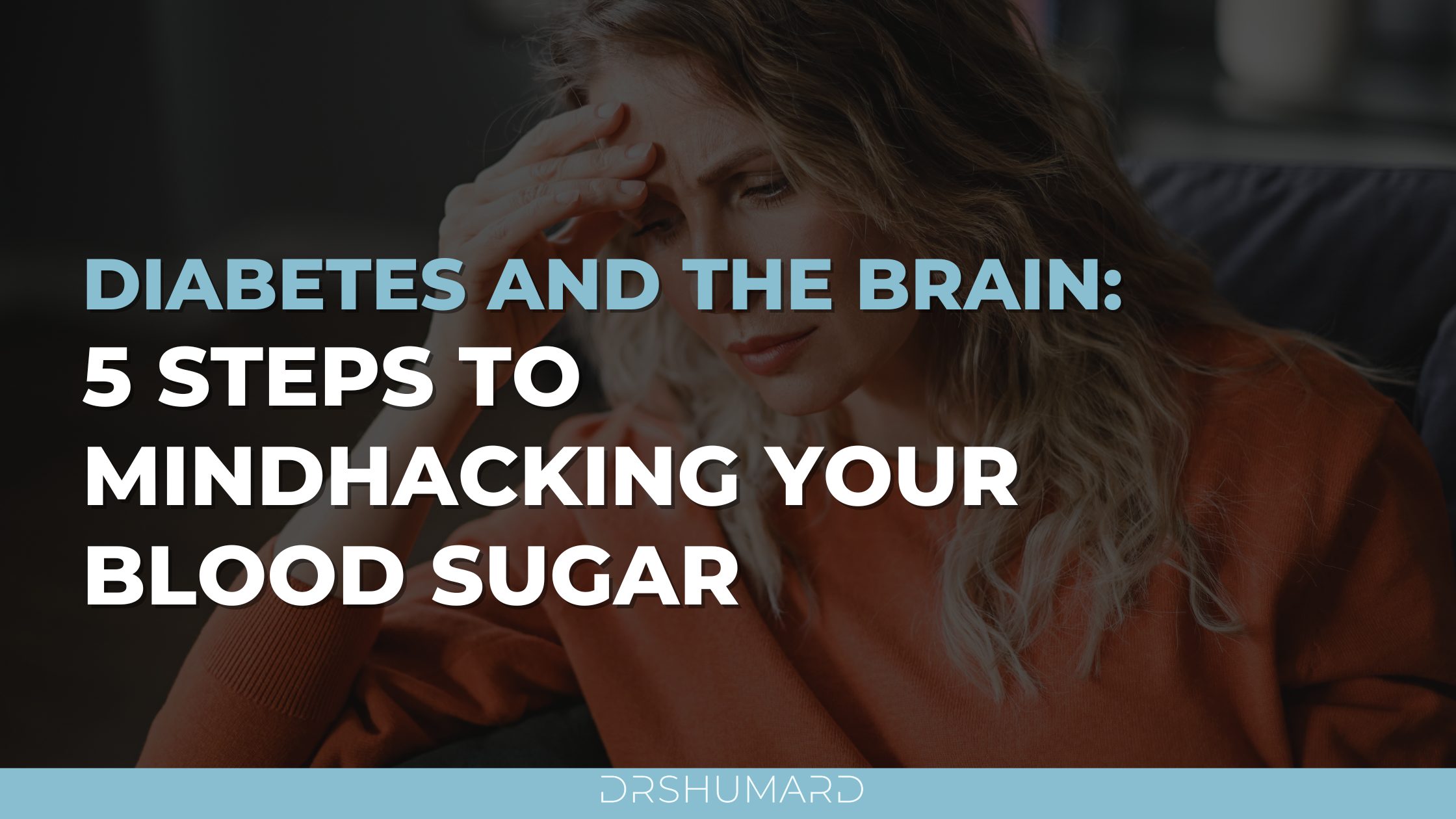
Do you ever feel like managing your diabetes is a battle not just against your body but against your mind? You know what you need to do. You know the numbers, the diet, the routine. Yet, there's a heavier weight—an emotional burden that turns each day into a silent struggle.
If the prospect of planning your next meal fills you with anxiety, or if the sight of a glucose meter brings a sense of dread, you're experiencing the profound intersection of diabetes and mental health. It’s a vicious cycle when you’re trapped in it - but luckily, there IS a way out.
The Emotional Burden of Diabetes
Diabetes isn't just a physical condition; it's an emotional and psychological marathon. Each day brings its own set of challenges that can leave you feeling drained and defeated. It's the constant decision-making, the perpetual balancing act of food, insulin, and exercise, compounded by an inner voice that’s harshly critical when you slip up.
Imagine planning your day around every meal, every snack, adjusting for moments of activity, and still finding your blood sugar levels aren't where they should be. The guilt of "giving in" to cravings, the frustration of high readings, and the fear of long-term complications can lead to a cycle of stress and self-blame that makes management even harder.
The mind is often the #1 roadblock to reversing diabetes - yet also the most underestimated an overlooked element of healing.
ADHD and Diabetes: A Double-Edged Sword
For individuals with neurological conditions such as ADHD, managing diabetes isn't just a physical challenge—it's a psychological battleground where dopamine plays a critical role.
ADHD is often characterized by lower levels of dopamine, a neurotransmitter that drives the brain’s reward system. This deficiency can make ordinary tasks feel unrewarding or unengaging, which can lead to using food as a coping mechanism to fulfill the brain’s craving for dopamine.
Here’s a closer look at how ADHD can complicate diabetes management:
- Dopamine Deficiency: A lack of sufficient dopamine can lead individuals to seek comfort in food, particularly in sugary, high-carbohydrate foods that provide a temporary dopamine rush, exacerbating blood sugar management issues.
- Impulsivity: The impulsivity associated with ADHD means that the immediate gratification from eating sugary foods can often override the long-term goals of diabetes care.
- Forgetfulness and Inconsistency: Essential tasks like taking insulin or checking blood sugar levels can be easily forgotten, adding another layer of challenge to diabetes management.
The interplay between ADHD and diabetes requires not just behavioral adjustments but also an understanding of neurochemical dynamics that influence eating habits and self-care routines.

Strategies for Breaking the Cycle
Feeling trapped in a cycle of unsuccessful management and emotional turmoil isn't inevitable. There are ways to break free and find balance:
- Leverage technology to keep track of medications and appointments without relying solely on memory.
- Focus on consuming enough daily protein and essential fatty acids to give your brain the fuel it needs to feel and perform its best.
- Engage in mindfulness practices that enhance focus and reduce impulsivity around food choices, like yoga or meditation.
- Emotional support is crucial. Connecting with others who can help you carry the mental load of diabetes can be incredibly validating and empowering.
- Mental health professionals specializing in chronic illness can also provide tools to cope with the emotional aspects of diabetes management.
Your Road To Healing
Understanding the emotional landscape of diabetes is the first step towards empowerment. It's about acknowledging the struggles without judgment and taking proactive steps to address both the mental and physical aspects of the condition.
You're not just managing diabetes; you're navigating a complex emotional journey. With the right strategies and support, you can move beyond feeling trapped by diabetes and towards a life defined not by glucose levels, but by joy and fulfillment.
If you're ready to change how you manage diabetes by incorporating mental health into your care strategy, reach out. Working together with healthcare professionals who understand the intricate dance between mind and body can transform your care experience, helping you live well—emotionally and physically—with diabetes.
